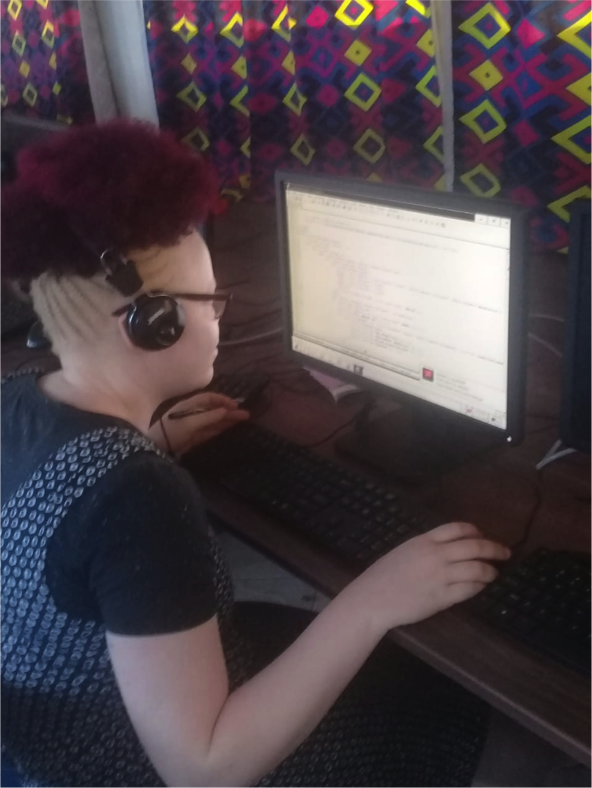Advancing Digital-Accessibility Knowledge & Understanding in Africa
inableAdmin

inABLE is committed to expanding our computer labs for the blind program throughout Africa. Nonetheless, the reality today is that we require additional funding to complete the program’s scale-up across Kenya’s 16 schools for the blind, allowing every school-aged student (blind or low vision) access to computer assistive technology and skills training.
At the same time, inABLE is advancing digital accessibility knowledge and understanding in Africa through research, advocacy, and innovation projects. Some of our ongoing activities are listed below:
- Online Education Research: In Africa, as everywhere, the COVID-19 pandemic has led to the sudden shift of higher education classes to online, television, radio, and other remote platforms and to a general home-learning context. This shift was largely unplanned and essentially unsupported. Learners with disabilities are experiencing substantial challenges with this dramatic shift and the rest of the student population (and their families). This project will document the lived experiences of a sample of young learners with disabilities in Kenya and compare their experiences to those of learners who do not have disabilities.
- Digital Inclusion Webinars: To address this digital accessibility gap in Africa, inABLE is hosting a monthly Inclusive Design in Africa webinar series that investigates how Africa can prepare to move forward in improving digital access for all people as a matter of priority. With support from partners and speakers from global tech leaders, including Mastercard Foundation, Google, Facebook, Uber, What’s App, and key accessibility advocates from Africa, Europe, the UK, and North America
- Inclusive Africa Conference: This fall, inABLE will host a virtual Inclusive Africa Conference to promote digital inclusion in Africa.
- AI for Accessibility project: inABLE with partner I-STEM is one of Microsoft’s 2019 Featured AI for Accessibility projects. The accepted AI concept presently in development—I-Assistant—will use text-to-speech, speech recognition, language understanding, and computer vision to give test takers an alternative to an in-person test reader and writer with an automated tech-powered conversational experience.
inABLE Internship Program Extends Computer Skills Learning
For the last one month, Delvin Obara, a 20-year-old low vision high school graduate, has been advancing her computer skills at the new inABLE internship program. Delvin had previously participated in the inABLE computer-labs-for-the-blind program at St. Lucy’s Primary and high schools for three years. She is now concentrating on honing her coding skills.
“I’ve been learning HTML, CSS, and the Bootstrap framework for the past month. As of now, I can confidently work with HTML and CSS, and I am still learning the intricacies of Bootstrap. My ambition is to achieve perfection in my coding and accessibility work by the end of the year. My goals for the internship are to perfect my coding and accessibility work by the end of the internship so that I can take on new lessons and responsibilities,” says Delvin
Written by: By Douglas Omweba, Lead Instructor, inABLE Computer-Labs-for-the-Blind program at St. Lucy’s Schools for the Blind – Meru. Kenya